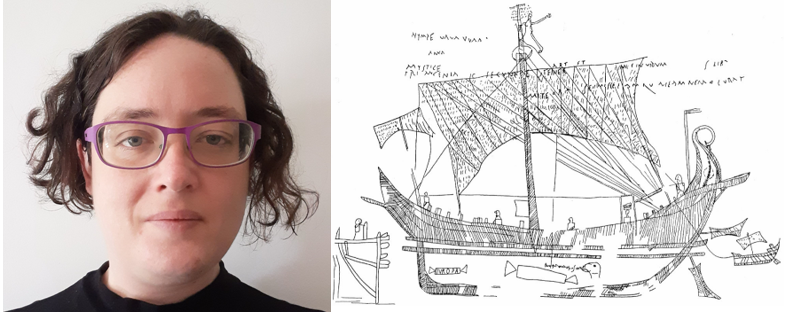402 Cohen Hall, 249 South 36th St.
*4:15-4:45 pm: Coffee and cookies in Cohen Hall 2nd Floor Lounge. All are welcome.
Speaker: Mali Skotheim, Assistant Professor of English, Ashoka University
Title: "Malabar on the Greco-Egyptian Stage: Indian Ocean Connections and the Charition mime (P.Oxy. 413)"
Abstract: Fascination with the world beyond the Mediterranean is persistent in Greek literature of the Roman Empire. One interesting case is the 2nd c. CE Charition mime (P. Oxy. 413), which transfers the plot of Euripides' Iphigeneia among the Taurians to the Malabar coast of India, staging choruses of Indian men and women who speak their own language, a cast of Greeks trying and often failing to understand, and a bilingual Indian king. The Charition was written and performed at a time when trade between the ancient Mediterranean and Indian Ocean worlds was at its peak. According to Strabo, in his own time, 120 ships per year traveled from Myos Hormos on the Red Sea to India (Str. 2.5.12). This long-distance trade increased in the 1st-2nd c. CE. The Periplus Maris Erythraei, a Greek text of the 1st c. CE, describes an active trade route along the coast of India, with textiles, tools, foodstuffs, aromatics, and raw materials changing hands from Gujarat to Malabar to Orissa. Enslaved people were also transported on this route. This talk seeks to situate Charition in the context of the movement of goods and people between the Mediterranean and Indian Ocean Worlds, through Egypt, in light of recent advancements in the study of Indo-Roman trade.


 Department of Classical Studies
Department of Classical Studies